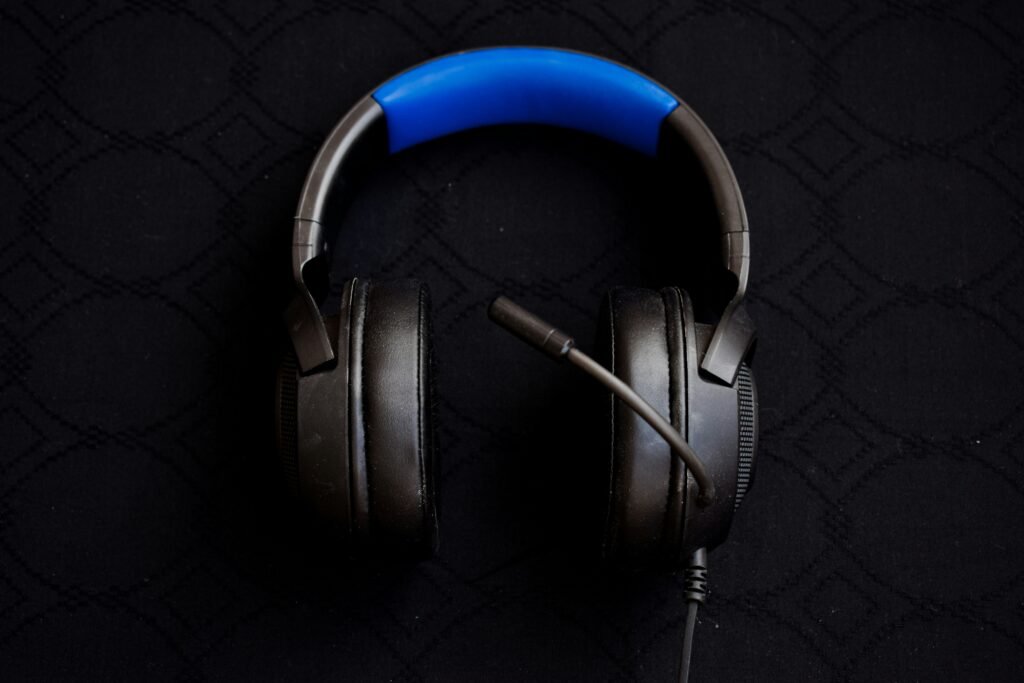Introduction:
Choosing between a wired and wireless gaming headset is a common dilemma for gamers. Both have their unique advantages and disadvantages, depending on your gaming setup and preferences. In this article, we’ll dive into the factors that differentiate these two types of headsets to help you make an informed choice.

Latency and Sound Quality
For competitive gamers, latency—the delay between the game’s audio signal and the sound output from the headset—can be a make-or-break issue. Wired headsets are known for their near-zero latency, making them a top choice for fast-paced games like first-person shooters where every millisecond matters. This lack of delay gives you an edge, as you’ll hear in-game sounds almost instantly, which can help you react faster.
Wireless headsets have improved in recent years, and many modern models offer low-latency technology. However, there can still be a slight delay, especially with Bluetooth headsets, which may not be ideal for competitive gaming. The preferred option among wireless headsets is the 2.4GHz connection, which provides a more stable and lower-latency experience. While not quite as fast as a wired connection, 2.4GHz wireless technology has closed the gap considerably and is often indistinguishable for casual or single-player games.
Convenience
One of the main attractions of wireless headsets is the freedom of movement they offer. With no cables tethering you to your gaming setup, you’re free to lean back, walk around, or even grab a snack without taking off your headset. This flexibility can be especially useful if you tend to move around during gameplay or if you use the same headset for multiple devices around the house.
On the other hand, wired headsets can feel restrictive because of the cable. For some gamers, the cable management issue is a hassle, especially if you have a large gaming setup. However, wired headsets eliminate the need for charging and ensure a stable connection. If you’re primarily stationary while gaming and don’t mind the cable, the convenience of a wired headset’s plug-and-play simplicity can be a significant advantage.
Battery Life
Battery life is a critical factor with wireless headsets, especially if you often game for long hours. The battery life of a wireless gaming headset typically ranges from 10 to 20 hours, though some high-end models can last 30 hours or more on a single charge. Many wireless headsets now offer fast-charging options, allowing you to get several hours of playtime from just a 10- to 15-minute charge. If you’re a marathon gamer, having a headset that supports quick charging or can be used while charging is ideal.
Wired headsets don’t require charging, which can be a relief for those who want uninterrupted gaming sessions. Since they draw power directly from your gaming console or PC, you’ll never have to worry about a wired headset dying on you in the middle of a game. For some, this aspect alone makes wired headsets a preferred choice, especially in high-stakes gaming situations.
Compatibility
Wireless headsets often have more specific compatibility requirements than their wired counterparts. Some wireless headsets are designed for particular platforms, such as PlayStation or Xbox, while others require a USB dongle for PC connection. Bluetooth-enabled headsets are often cross-compatible with a variety of devices, but they may not provide the same low-latency experience as 2.4GHz wireless models.
Wired headsets generally offer universal compatibility, as they connect through a 3.5mm audio jack or USB port. Most gaming consoles, PCs, and mobile devices support these connections, making wired headsets more versatile in terms of connectivity. If you want a headset that can easily switch between multiple gaming devices without additional adapters or dongles, a wired headset might be your best bet.
Price Comparison
Price is another factor that differentiates wired and wireless gaming headsets. Wireless headsets are often more expensive due to the technology required for wireless connectivity and battery power. This can make a significant difference for gamers on a budget, as you can usually get a higher-quality wired headset for the same price as a mid-range wireless model.
If you’re looking for premium sound quality, you might find that wired options offer more value within the same price range. However, if convenience and freedom of movement are more important to you, investing in a high-quality wireless model may be worthwhile. Understanding your priorities—whether it’s sound quality, mobility, or budget—can help you make the best choice.
Conclusion:
Deciding between wired and wireless headsets depends largely on your gaming style and preferences. For more insights on key features, visit our Understanding Gaming Headset Features guide.
Internal Links: Need more guidance on sound quality and comfort? Check out our How to Choose the Perfect Gaming Headset for Your Play Style for a comprehensive buying guide.
